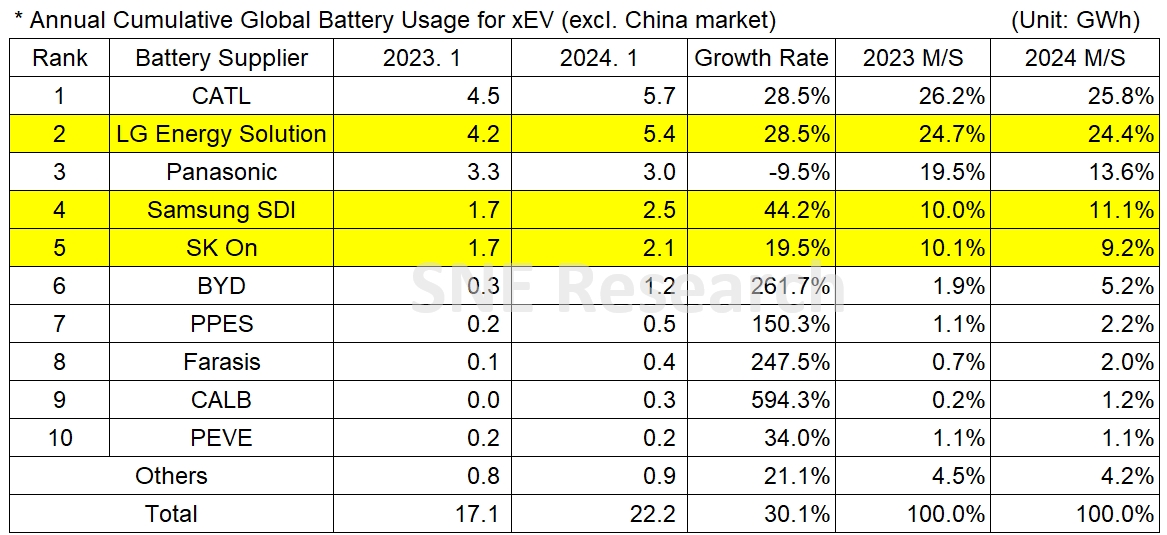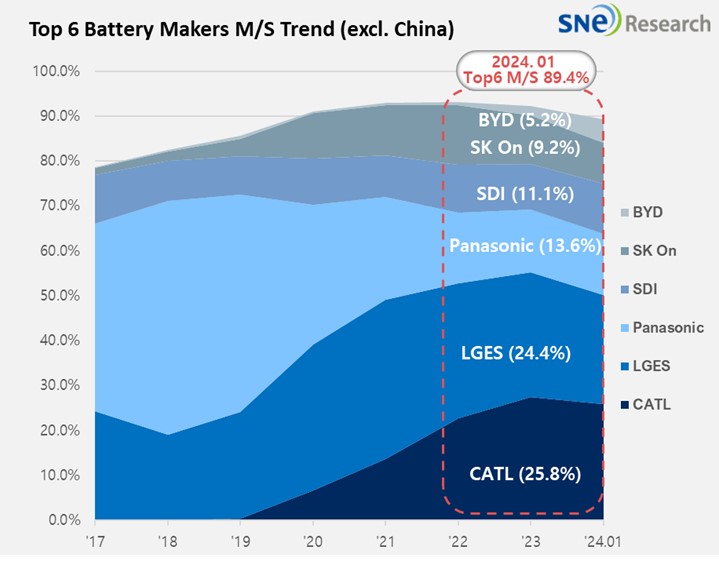Institutions announce overseas automotive power battery data for January: an annual increase of 30.1%, led by CATL
Research firm SNE Research released statistical data on March 8th, stating that in January 2024, the global usage of pure electric vehicle power batteries, excluding the Chinese market, reached 22.2GWh, a year-on-year increase of 30.1% (including pure electric vehicles, plug-in hybrid vehicles, non plug-in hybrid vehicles, etc.). In 2023, the global EV battery carrying capacity except for the Chinese market was 319.4GWh.
Ningde Times remains a leader, with a battery usage of 5.7GWh, an increase of 28.5%, and a market share of 25.8%, except for the Chinese market. LG New Energy ranks second with 5.4GWh and a market share of 24.4%. Panasonic, Samsung SDI, and SK On rank third to fifth, while BYD ranks sixth.

The total market share of South Korean battery companies is 44.7%, a decrease of 0.1 percentage points year-on-year, but the overall battery usage is on the rise. Korean batteries are mostly used in BMW, Audi, Rivian, Fiat, Hyundai, Kia and other models, while LG's new energy products are adopted by Tesla, Ford, and General Motors, achieving good sales in Europe and North America.

The institution stated that CATL's market share in non Chinese markets is also rapidly expanding, and its batteries have been applied to Tesla Model 3, Model Y, as well as models such as BMW, MG, Mercedes Benz, and Volvo. Not only that, Ningde Times is also equipped with new Korean Hyundai KONA models, Kia Ray EVs, and others, indicating that its influence in Korea is expanding.
Starting from 2023, the global electric vehicle market has slowed down, with Ford, General Motors, Renault, and Volkswagen all reducing or delaying investment in electric vehicles, which has affected battery manufacturers to slow down production capacity. The institution expects that plug-in hybrid vehicles and non plug-in hybrid vehicles will experience growth momentum in the short term in the future.
Starting from 2023, the global electric vehicle market has slowed down, with Ford, General Motors, Renault, and Volkswagen all reducing or delaying investment in electric vehicles, which has affected battery manufacturers to slow down production capacity. The institution expects that plug-in hybrid vehicles and non plug-in hybrid vehicles will experience growth momentum in the short term in the future.